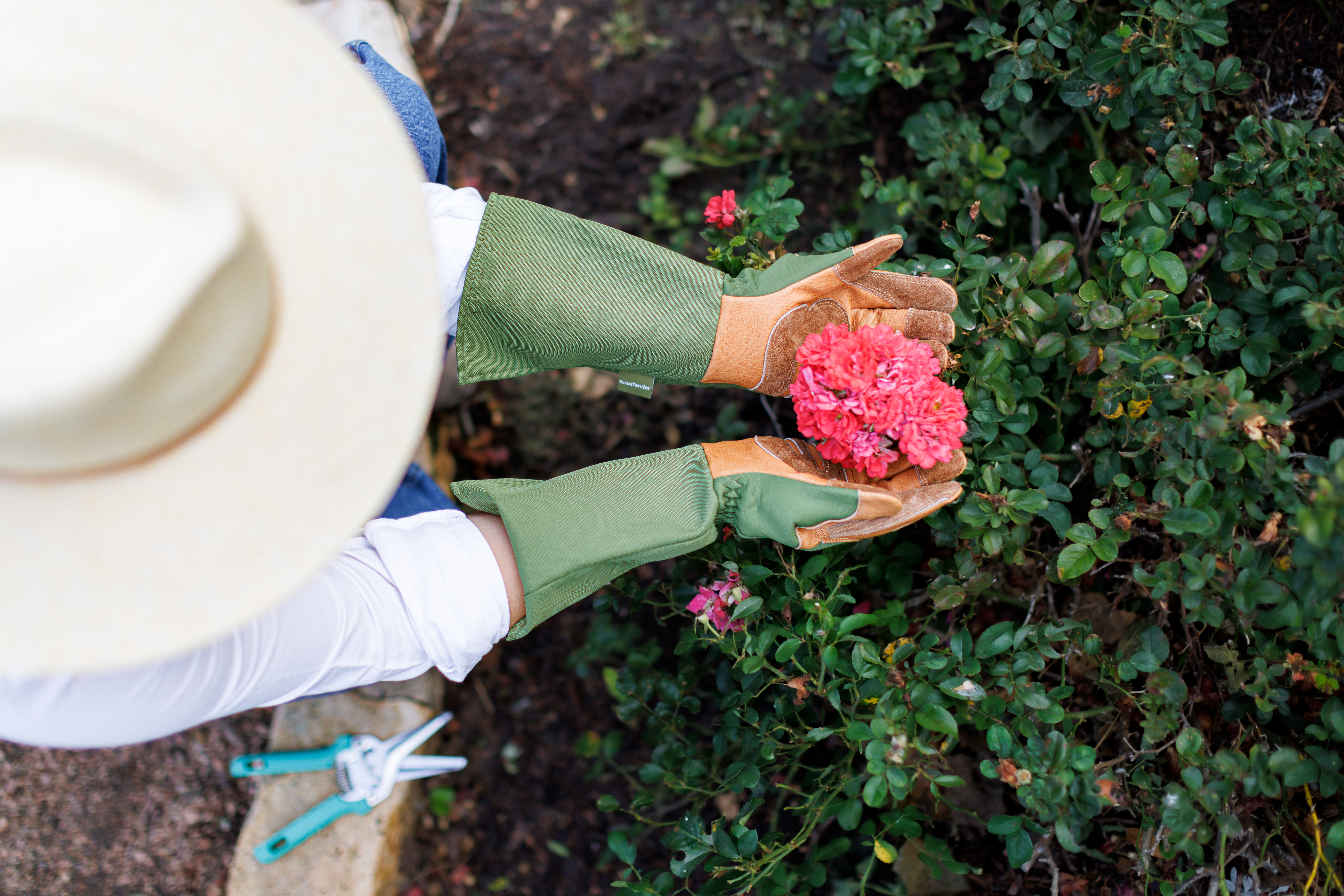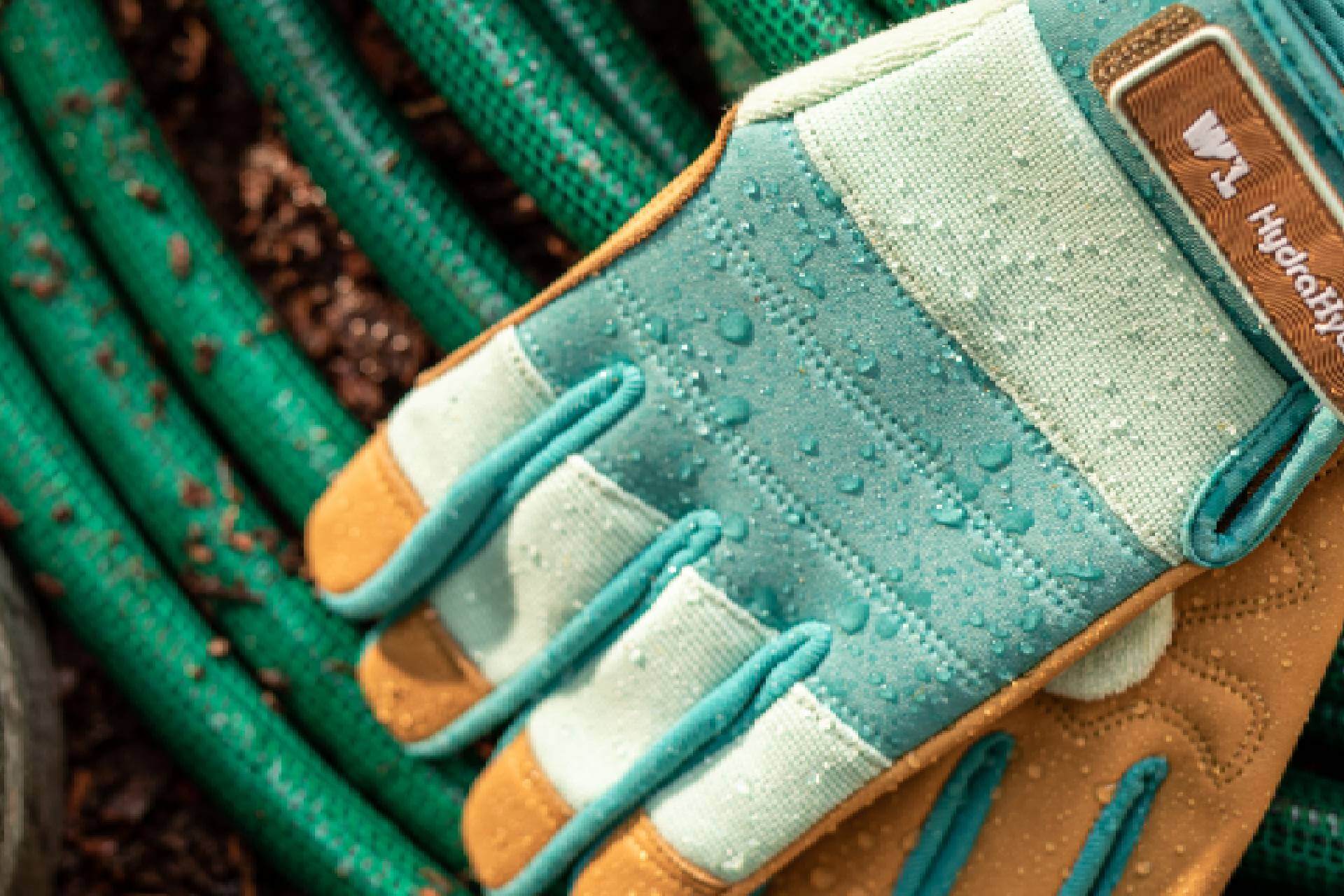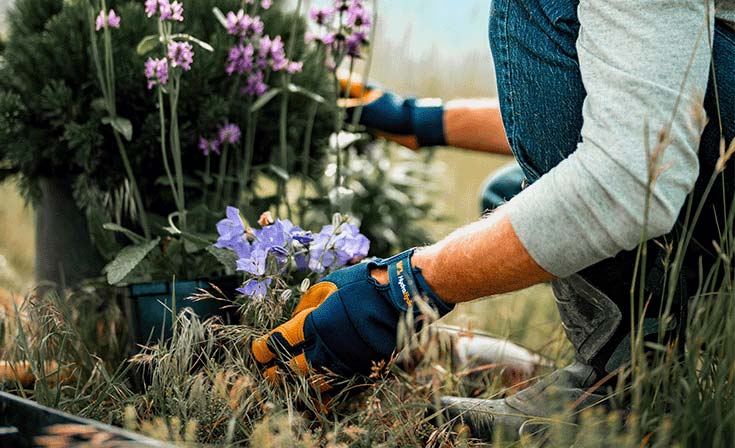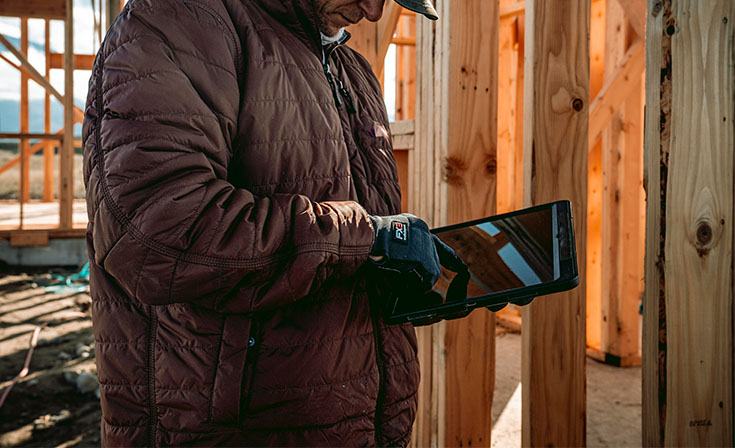Keeping beautiful roses in your garden comes with a price that some people underestimate. Razor-sharp thorns from rose bushes can poke or slice through skin faster than you might expect if you’re not careful. Finding the right gloves for gardening roses is a deciding factor on whether you’ll be enjoying your time crafting the perfect garden of flowers or nursing puncture wounds and cuts for two weeks.
Rose gardening presents unique challenges that regular garden gloves simply can’t handle. The combination of sharp thorns, rough stems, and the need for dexterity when making precise cuts requires specialized protection. Your hands deserve better than thin fabric gloves that leave you vulnerable to every prick and scrape.
What Makes Rose Gardening So Tough on Your Hands
It’s common knowledge that roses have thorns, but it can be easy to forget just how treacherous it can get when working with roses. These thorny flowers aren’t like tending to your average flower bed; the plants’ thorns vary in size and sharpness depending on the variety. Climbing roses often sport large, curved thorns that can hook into skin and clothing. Tea roses have smaller thorns, but they are still capable of poking your fingers and drawing blood. Beyond the obvious thorn threat, rose gardening involves handling rough, woody canes during pruning season. Dead-heading spent blooms requires reaching deep into thorny bushes where branches catch and scrape exposed skin.
Transplanting roses means dealing with root balls and soil while maneuvering around protective thorns that seem to attack from every angle. Regular cotton or thin synthetic gloves offer about as much protection as wearing paper towels. They tear easily, provide no puncture resistance, and leave your wrists and forearms exposed to scratches. When you’re working closely with these beautiful-but-sharp plants, half-measures in hand protection lead to an unpleasant gardening experience.
Best Gloves for Rose Gardening: Key Features
The best gloves for rose gardening share several important characteristics that separate them from basic garden varieties. First and foremost, puncture resistance tops the priority list. Good rose gardening gloves typically come with reinforced palms and fingers that can withstand direct contact with thorns without allowing penetration. Extended cuff protection is also an important feature to note. Rose thorns don’t limit themselves to attacking your palms and fingertips; the pesky thorns will slice up your wrists and forearms, too. That’s why gloves for gardening roses typically extend several inches up from the wrist. This extended gauntlet cuff helps protect your skin from the twisting branches. Protection for your hands is the primary goal for rose gardening gloves, but you still need enough finger mobility to grip pruning shears properly, manipulate small stems, and perform detailed work. The best gloves strike a fine balance between protection and flexibility.
Another variable to consider is durability; the durability of gloves for gardening roses determines whether the gloves will last through multiple growing seasons or fall apart after a few uses. Premium rose gardening gloves are made with reinforced stitching, quality materials that resist tearing, and construction that can withstand repeated washing without falling apart. Additionally, gloves that bunch, bind, or cause excessive sweating will have you removing them frequently, defeating their protective purpose.
Comparing Materials: Why Leather Wins for Rose Work
Several materials compete for attention in the gardening glove market, but leather consistently proves superior for rose work. The natural puncture and abrasion resistance of grain cowhide leather on the palm pairs perfectly with materials like spandex and neoprene for comfort on the back of the hand.
If one were to use thin synthetic knit gloves to care for roses, those gloves would tear easily when snagged on thorns, leaving you with shredded gloves and potentially injured hands. Some coated synthetic options offer better protection, but often sacrifice breathability and dexterity. Leather gardening gloves for roses provide natural puncture resistance that synthetic materials can’t match. Quality leather molds to your hands after a break-in period for a better fit/comfort and maintains its protective properties season after season.
Canvas and heavy cotton gloves offer some protection and breathability, but they can’t match leather’s thorn resistance. Thorns that would bounce off leather will often penetrate fabric-based gloves, especially after the material gets wet or worn. The best gloves for rose gardening typically combine leather palms with breathable fabric backs. These hybrid styles of gloves offer the wearer maximum protection and still allow air circulation to prevent excessive sweating.
Leather Advantages for Rose Gardening
Leather gardening gloves for roses offer several specific advantages that make them worth the investment. Leather is naturally durable and is excellent in puncture resistance. The material is also thin enough to allow flexibility. Leather also naturally resists moisture while remaining breathable, an important consideration when working in damp conditions or during long gardening sessions. Quality leather also develops a patina over time that actually improves its appearance and performance. Leather also has some grip properties that help prevent tools from slipping. Slipping or dropping tools can be a nuisance when working with sharp pruning shears around delicate plants.
Proper Care Extends Glove Life
Quality leather gardening gloves for roses is an investment when properly cared for. Be sure to remove any debris and allow gloves to air dry completely before storing them after each use. Wet leather left in enclosed spaces can develop mold or begin to deteriorate. Periodic cleaning with appropriate leather conditioners is important to keeping the material supple and maintaining its protective properties. Avoid harsh detergents or excessive water that can damage the leather’s natural oils.
Store gloves in a cool, dry place away from direct sunlight, which can crack and fade leather over time. Proper storage between growing seasons helps extend glove life significantly.
Gardening Better with Wells Lamont
Wells Lamont has been crafting quality work gloves since 1907, bringing over a century of experience to gardening protection. Our gloves for gardening roses provide the puncture resistance and durability that our customers need and love to have. Explore our complete collection of gardening gloves and discover why quality leather protection makes all the difference.
For more extraordinary gloves, check out our complete collection of products at Wells Lamont today.




